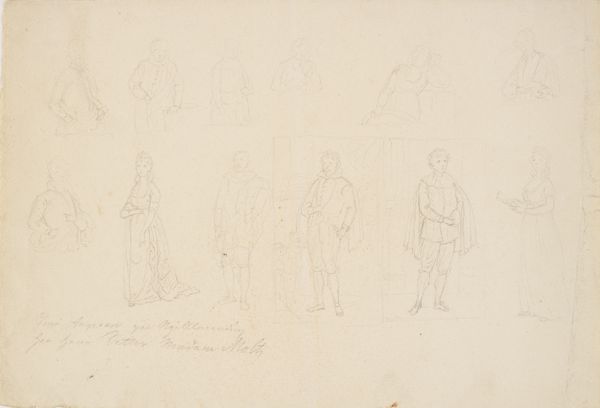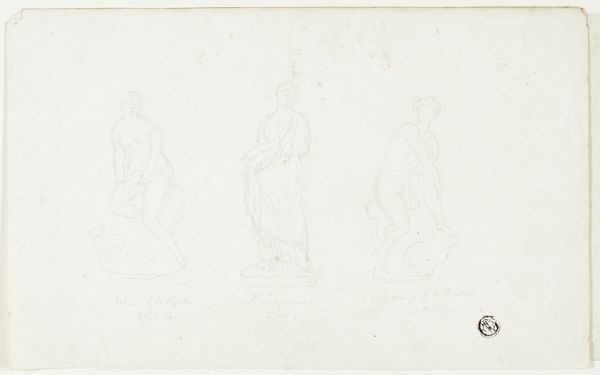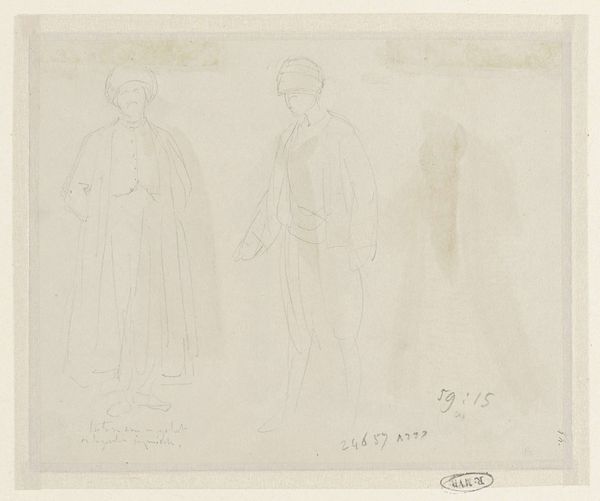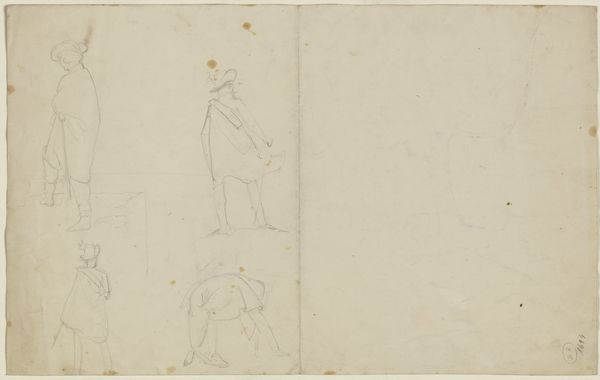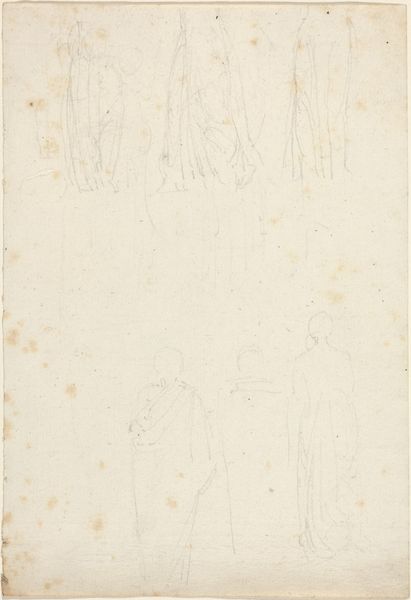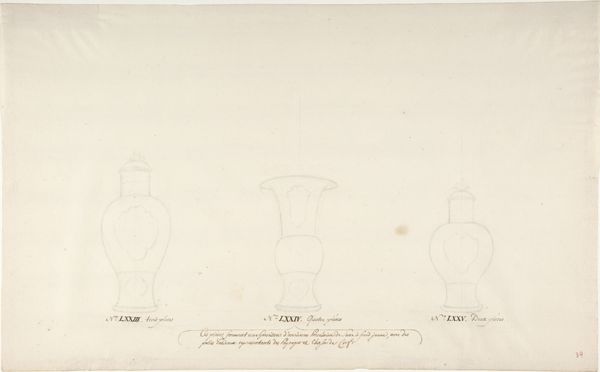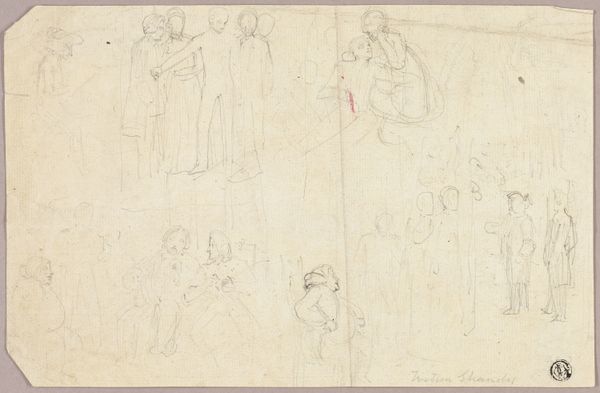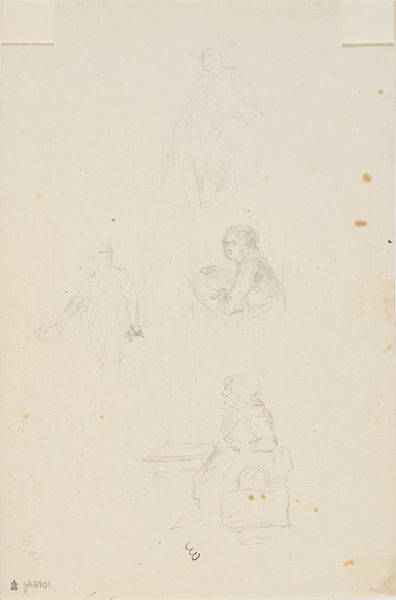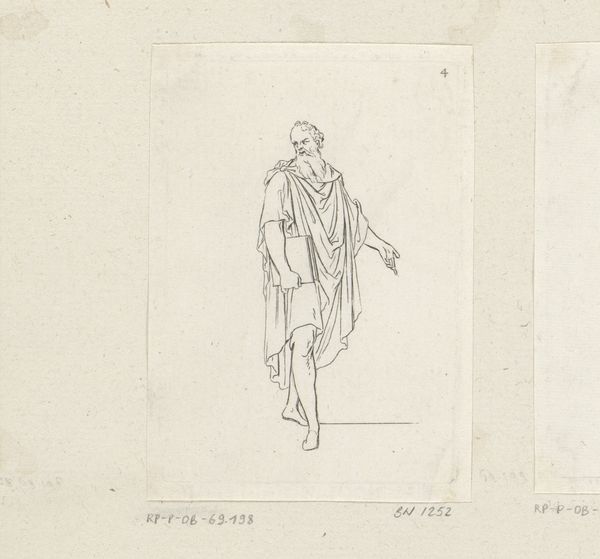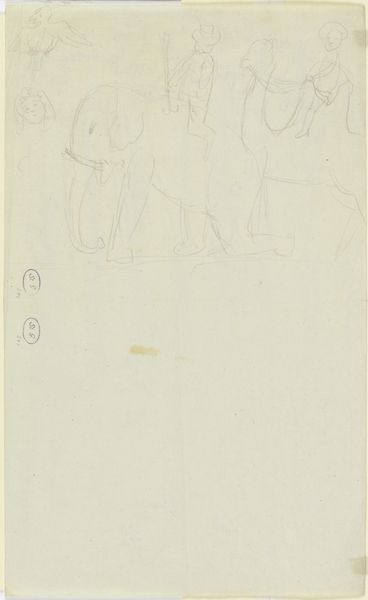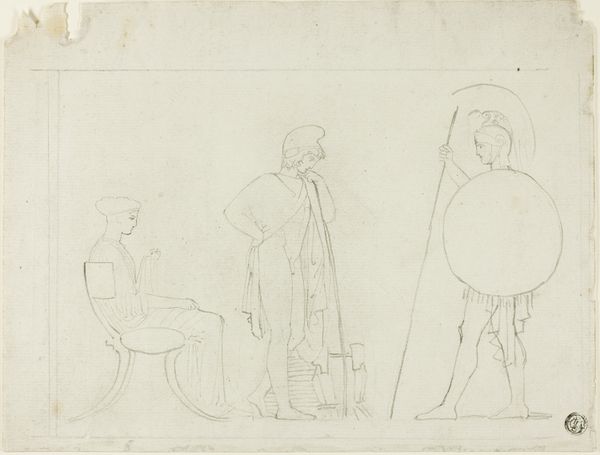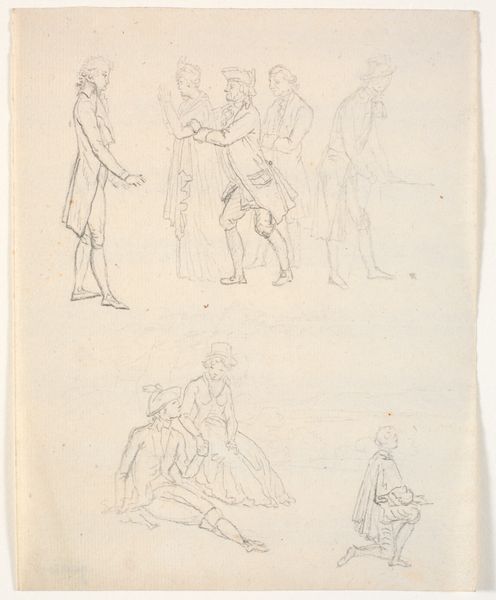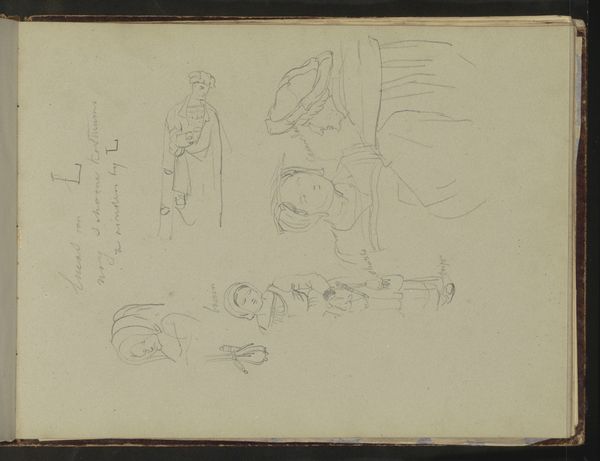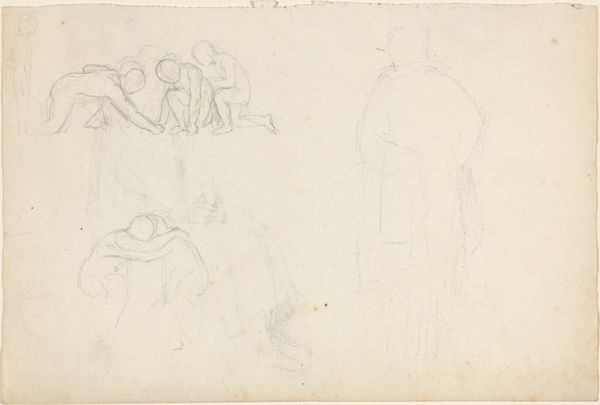
Three Large Statues by Algardi and Michelangelo c. 19th century
0:00
0:00
drawing, print, paper, pencil, graphite
#
portrait
#
drawing
# print
#
classical-realism
#
figuration
#
paper
#
pencil
#
line
#
graphite
Dimensions: 159 × 255 mm
Copyright: Public Domain
Curator: At first glance, the three figures seem so ghostly, like whispers from antiquity. Editor: Indeed, they’re lightly sketched in graphite, mere suggestions of form on the paper. We are looking at "Three Large Statues by Algardi and Michelangelo," a 19th-century drawing that resides here at The Art Institute of Chicago. Curator: Graphite is like a sculptor's first touch to a block of stone. Do you feel how delicate the paper seems? Like it would crumble into dust with too strong a breath? I can imagine the artist quickly dashing these lines while admiring the original sculptures. Editor: There is something quite evocative about its unfinished nature. Formally, it's a study in contrasts, isn't it? The strong, almost severe lines of the seated Michelangelo statue in the center are starkly opposed by the fluid contours of Algardi’s figures. Curator: The middle statue is pretty cool; it just jumps off the paper, demanding attention, almost argumentative about taking center stage like this. Editor: Precisely, notice how the artist renders the musculature and drapery in those figures, establishing spatial relationships solely through tonal variations and outline. No color, just light, and shadow defining volumes in a very classical mode of realism. Curator: That central figure appears defiant, challenging our contemporary expectations of beauty and perhaps even sparking discourse about heroic male forms in art. I am not sure I love him, but I respect him! Editor: I can see what you mean about respect; it echoes ideas related to idealized beauty during its period. Though this print appears aged, its lines offer something that transcends epochs in a way not everything manages to. Curator: Absolutely, this isn't just a copy of three old statues; it's a lively exchange across the ages. These artists converse about capturing beauty in real spaces, making you stop and really consider things. Editor: Very true; a fleeting meditation on permanence sketched in impermanence—quite thought-provoking.
Comments
No comments
Be the first to comment and join the conversation on the ultimate creative platform.
